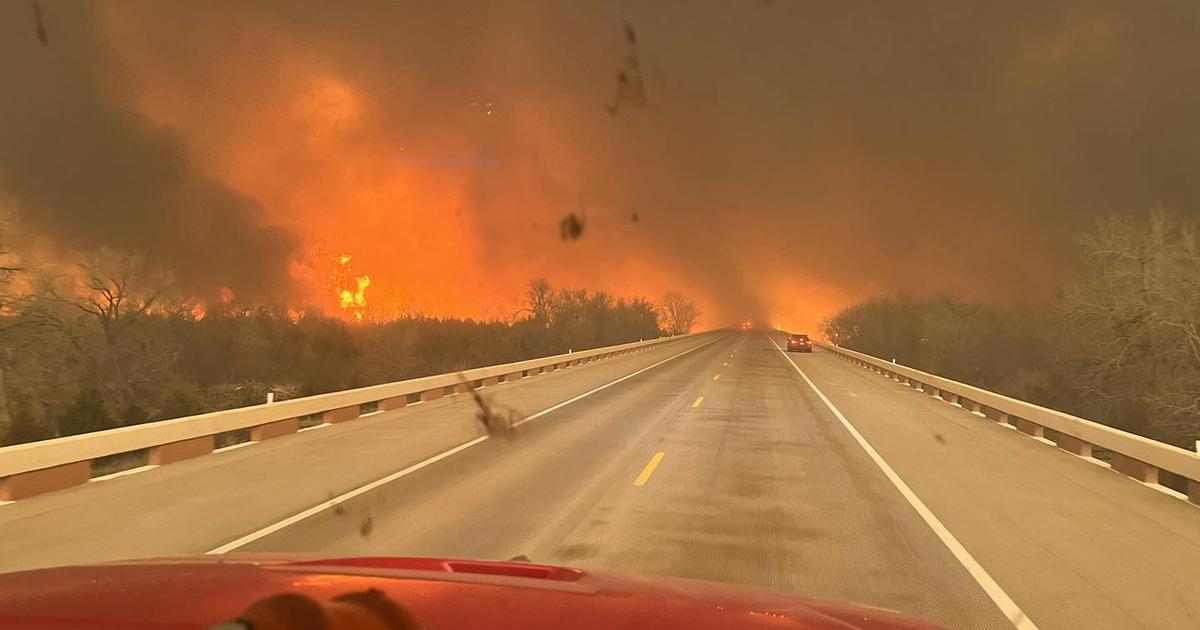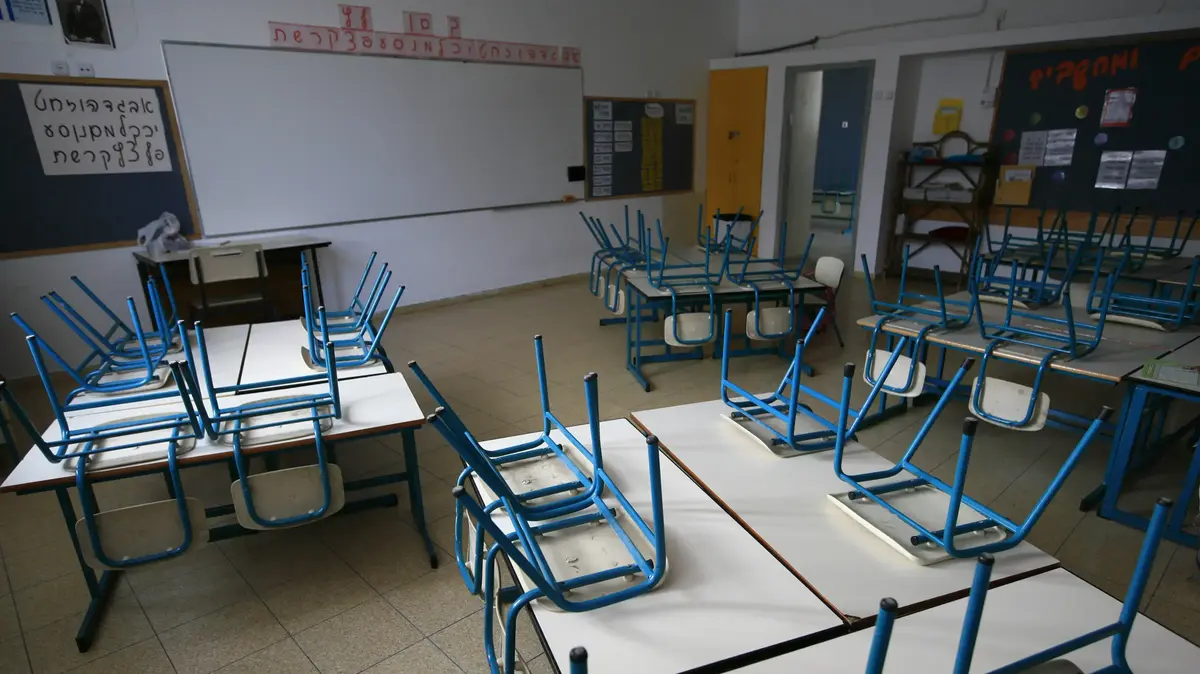Icon: enlarge
New school shutdown decided: »Play it safe before Christmas«
Photo:
Fabian Sommer / picture alliance / dpa
What nobody wanted for months is now coming: daycare centers and schools will be closed nationwide from Wednesday.
Contacts should be "significantly restricted" here, as Chancellor Angela Merkel emphasized on Sunday after consultations with the Prime Minister.
Children should "be cared for at home whenever possible."
Merkel has thus prevailed.
A few days earlier, in an emotional speech, she called for stricter corona measures for schools, distance or alternating lessons "or whatever".
The Conference of Ministers of Education, on the other hand, had been reluctant to extend the Christmas holidays until recently.
However, some education ministers had already softened or discarded the mantra of "classroom teaching priority" on their own.
For days it has been certain that daycare centers and schools in the corona hotspot Saxony will be closed from Monday.
North Rhine-Westphalia is also suspending mandatory attendance after immense pressure from parents and teachers' associations.
After the joint resolutions of the federal and state governments on Sunday, the education ministers are now to be committed to a clear, uniform line - and a radical course:
Schools are generally closed from December 16 to January 10 or the compulsory attendance will be suspended.
This period overlaps with the Christmas holidays.
The ministers of education had previously (almost) all decided to bring the start of the holiday nationwide to Friday.
There should be emergency care at daycare centers and schools.
Prime Minister Markus Söder emphasized that the offer should only be used in an emergency, "if it cannot be organized otherwise."
Unlike in spring, however, the childcare is not specifically intended for children of parents with systemically relevant jobs.
Schools should find regulations on distance learning.
However, separate regulations can be made for graduating classes.
Söder emphasized that the aim was to preserve educational equality in any case and, if necessary, postpone exam dates so that students would not have to take a "stress high school" or a "stress" middle school-leaving certificate.
That means: whether schools hold distance learning from Wednesday as recommended or bring the Christmas vacation forward, ultimately depends on the state.
Because despite all resolutions, education remains a matter for the federal states.
How they actually implement the regulations on site will therefore be different, as was already shown on Sunday immediately after the federal-state switch.
Schools close Monday or Wednesday or ...
Bavaria,
for example, closes daycare centers and schools for all age groups from Wednesday.
In
North Rhine-Westphalia
, the decision announced on Friday to lift the compulsory attendance from Monday remains, as Prime Minister Armin Laschet announced.
In NRW, parents have already been asked not to bring their children to daycare or school if possible.
Nevertheless, Laschet spoke of a "care guarantee".
Parents who would have to leave their children to care could continue to do so.
In the schools, however, there are no lessons as usual.
Hamburg
temporarily lifts the attendance requirement from December 16 to January 10 and replaces it with other school offers.
The schools will remain open until the Christmas holidays, according to the school authorities.
However, parents should decide whether their children should study in school or at home.
Attendance is still compulsory for exam situations.
The school authorities wanted to "inform promptly" of how things will continue after January 10th.
Rhineland-Palatinate
will suspend attendance at schools from Wednesday, as Prime Minister Malu Dreyer (SPD) said on Sunday.
The schools remained open for students who could not be looked after at home until the start of the holiday on Friday.
After the holidays, there will be distance learning from January 4th to January 15th.
Baden-Württemberg
closes schools and daycare centers from Wednesday.
In concrete terms, this means that students in their final year will be taught by distance learning until the start of the regular Christmas break on December 23rd.
Schoolchildren from the other years are sent on early vacation.
According to the information, children are entitled to emergency care if both parents or single parents are "considered indispensable" by their employer.
This applies equally to presence workplaces as well as home office workplaces.
Children who need care for their child's welfare are also entitled.
Schleswig-Holstein will
close the schools on Wednesday, but the school authorities urged parents: “If you can set it up, leave your children at home on Monday and Tuesday and use the option of an informal leave of absence from compulsory attendance.
You don't have to worry about your children missing out on important material in school. «From December 14th, only those exams that cannot be postponed, for example because they have to be brought in for the Abitur, are allowed to be written.
In
Mecklenburg-Western Pomerania
, face
-
to-face classes in grades up to 6th grade should still be possible in principle in the tightened corona shutdown.
Prime Minister Manuela Schwesig (SPD) said on Sunday that she recommends leaving children at home wherever possible.
The compulsory attendance could also be suspended after the Christmas holidays, and instead they could learn from home.
Daycare centers should therefore also remain open in principle.
Here, too, Schwesig spoke out in favor of parents leaving their children at home if possible.
From Monday onwards, more stringent measures for pupils from the 7th grade are already planned in large parts of the state.
These should then be communicated via the Internet.
These measures are initially planned until January 10th.
Keep restrictions "as short as possible"
Baden-Württemberg's minister of education, Susanne Eisenmann, spoke of the measures as an "inevitable" step.
"If all social life in Germany has to be shut down, it goes without saying that we also have to make a contribution to minimizing contact in schools and daycare centers," said Eisenmann.
At the same time, however, she demanded that daycare centers and schools should be "reopened as a priority".
Politicians should not lose sight of the fact that school closings are associated with numerous negative consequences for society, especially for children and young people.
The restrictions on regular operations should be "as short as possible" and remain limited to the period up to January 10th.
Will that work?
How long the new shutdown will last is still unclear.
In several federal states, the holidays last until January 10th anyway.
In others, the holiday calendar provides for two or two and a half weeks off school.
Here, too, "homeschooling" had already been partially announced for the days up to the 10th.
But then?
Söder did not want to promise that the usual daycare and school operations would start again on January 10th: "Even after that, I cannot imagine that everything will simply continue as normal." The virus does not stick to data.
It is unlikely that the situation will relax by January 10, according to teachers' associations.
All the more urgently, they demanded that all school actors should now immediately prepare scenarios for the time after the Christmas break.
"The schools must be given the freedom to further develop concepts for alternating and distance learning," demanded the chairman of the Education and Science Union (GEW), Marlis Tepe.
In contrast to the first shutdown in the spring, Merkel and the prime ministers made it clear this time that they are aware of what they are asking of mothers, fathers and children.
Berlin's head of government Michael Müller (SPD) spoke of "drastic measures for actually everyone, for the families of course."
He reminded of the many single parents who could not easily organize alternative care.
The decisions were made "not out of carelessness," he assured.
Politicians learned from the experiences in spring when daycare centers and schools were closed overnight for several weeks, said Müller.
This time, parents and schools will be given at least a day or two to prepare for the new shutdown.
Even if there are no particular abnormalities at the schools, there are still contacts and new infections in this environment.
Currently, all of this must be avoided, said Müller.
"Eleven fifty-five"
Söder declared it was "five to twelve".
"That's why we don't want to do things by halves anymore, we want to act decisively and play it safe before Christmas." In order not to leave parents alone with worrying about childcare, employers should also get one when the daycare and school are shut down again Make contribution.
Söder and Merkel asked for "generous home office solutions wherever possible" or, if possible, company holidays.
The joint resolution also deals with extra vacation: "Additional opportunities are being created for parents to take paid vacation to look after their children during the period mentioned." Federal Labor Minister Hubertus Heil (SPD) is already working on regulations for additional vacation for the upcoming Shutdown affected parents, it said.
The parents' initiatives “Families in Crisis” and “Children Need Children”, which were founded after the stress of the first shutdown, warned in view of the new resolutions: “We support that everyone must make an appropriate contribution in the fight against Covid-19.
But it must be clearly stated that many children and families can no longer bear any further contribution «, says Stephanie Schläfer from» Children need children «.
Udo Beckmann, head of the Association for Education and Upbringing (VBE), warned of ongoing technical problems in schools.
Comprehensive hybrid teaching is not feasible.
"We are facing the same problems as in March: the children who should receive special support by keeping schools open are now again those who do not have their own room at home, let alone their own digital device."
Politicians have made some efforts in the past few months to advance digitization, but there is no question of nationwide coverage.
The state association of grammar school parents in North Rhine-Westphalia also sees the schools poorly prepared and asks indignantly: "If there isn't a basic master plan for schools for North Rhine-Westphalia, when?"
Icon: The mirror
Fok / dpa / AFP / Reuters









